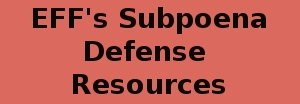
Photo Courtsey of Jemimus Attribution 2.0 Generic
With books like Fifty Shades of Grey flying off the shelves, the question of the commercialization of fan fiction is once again at the forefront. While fan fic authors have been steadfastly devoted to their art since before the Internet, emerging technologies have brought about new scrutiny to what this community really means for traditional media giants and who, if anyone, should be able to profit from fan fiction.
About a year ago, Jeff Bezos decided to set aside some digital real estate just for the fan fic community. Amazon’s Kindle Worlds is an e-book publishing platform for fan fiction, and works like this: Amazon partners with copyright owners, like Alloy Entertainment, who license to Amazon its fan fiction publication rights. These licensors are known as “World Licensors,” and by licensing their “World,” fans can create and profit off of their fan fiction through a royalty system.
Among the first “Worlds” that made up this new universe were CW’s Gossip Girl, The Vampire Diaries, and Pretty Little Liars. Kindle Worlds has since added G.I. Joe, Veronica Mars, and seventeen other Worlds. The question is, why would readers buy works from Amazon when there is an endless supply of free fan fic from other Internet sites? Fanfiction.net, for one, is the world’s largest fan fiction archive and forum where writers and readers come together to do just this. The recently launched Archive of Our Own (created by the Organization for Transformative Works) is another space online where fans have come together to share their fan faction and other original fan works in a non-commercial space.
The difference of utilizing the Kindle Worlds platform has been boiled down to three main points: (1) monetization for authors (each e-book costs between $0.99 to $3.99, but this is set by Amazon); (2) does not require constant Internet connectivity; and (3) a minimal level of quality that Amazon ensures by having final say on what will be made available. See Kindle Worlds Publishing Agreement Section 7(c).
On that note, we’re going to get real with the Kindle Worlds Publishing Agreement. Here’s what we found to be important to keep in mind if you are, or are considering to become, a Kindle Worlds author.





 Today, New Media Rights joins hundreds of thousands of consumers, creators, and businesses in filing public comments about the future of Internet. The Federal Communications Commission now has an opportunity to choose a communications future of innovation, creative exchange, and consumer choice, rather than one where powerful broadband Internet companies can alter the Internet to support entrenched business models.
Today, New Media Rights joins hundreds of thousands of consumers, creators, and businesses in filing public comments about the future of Internet. The Federal Communications Commission now has an opportunity to choose a communications future of innovation, creative exchange, and consumer choice, rather than one where powerful broadband Internet companies can alter the Internet to support entrenched business models.